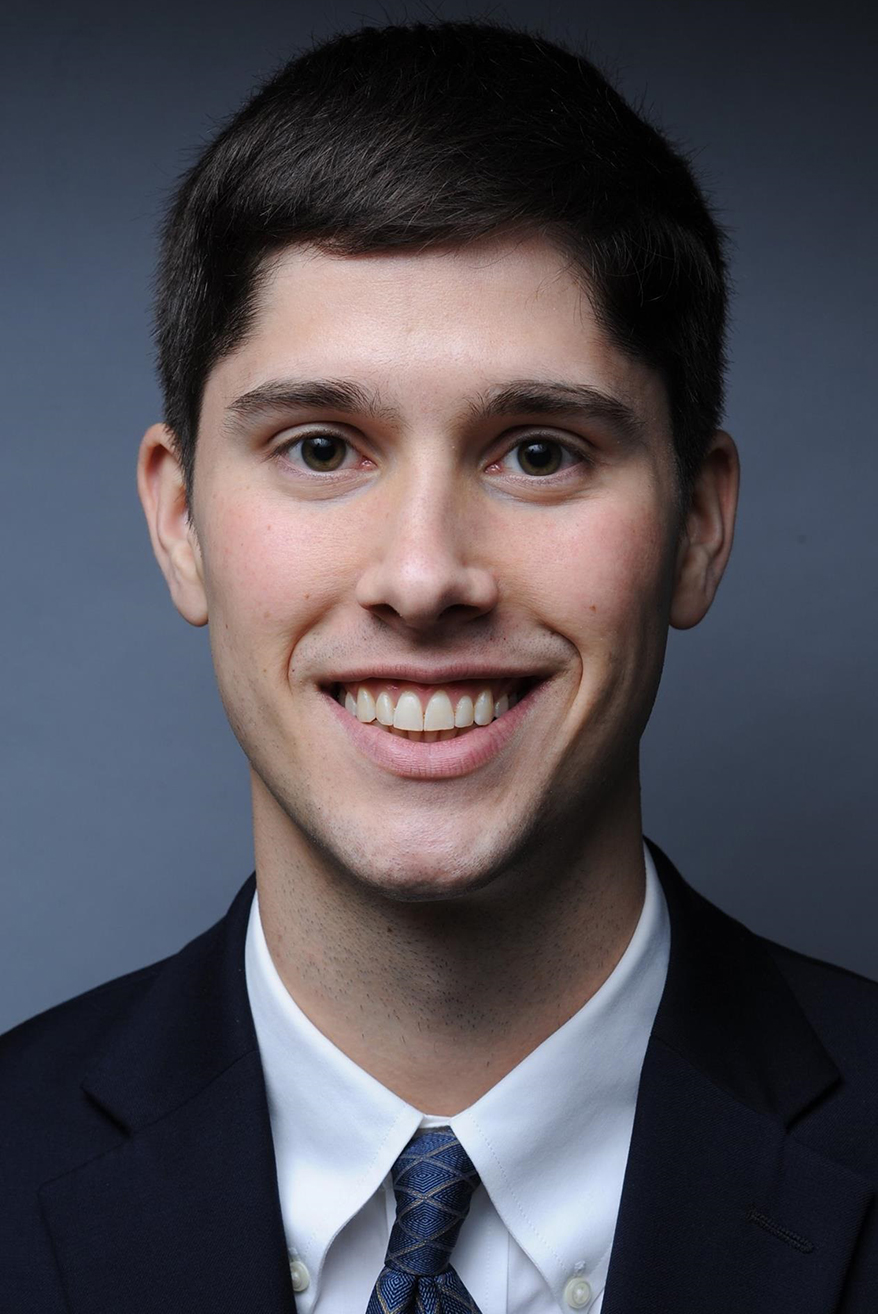
Christopher J. Kaler
(PRESS RELEASE) MIAMI, FL — Bascom Palmer Eye Institute of the University of Miami Miller School of Medicine announces that Christopher J. Kaler, has received a Research to Prevent Blindness (RPB) Medical Student Eye Research Fellowship that will allow him to take a year off from medical school and to devote that time to pursue a research project at Bascom Palmer.
Kaler earned a bachelor of arts degree in history, cum laude, from Boston College and completed the Postbaccalaureate Premedical Program at Columbia University. He also worked for two summers as a research student in the National Cancer Institute of NIH. There he studied interactions between the guanine nucleotide exchange factor Vav and protein kinase C isoforms in the Laboratory of Cancer Biology and Genetics headed by Peter M. Blumberg, Ph.D. Kaler also worked for six months as a visiting research scholar at Istituto Superiore di Sanità, Rome, Italy where he performed experiments to identify microRNA biomarkers associated with hepatoblastoma.
Kaler is currently between his 3rd and 4th years of medical school in the combined MD/MPH program at the University of Miami Miller School of Medicine. He has worked part-time in Bascom Palmer’s Ocular Oncology Laboratory since his freshman year of medical school. This laboratory takes a broad approach to research, looking at genetics and genomics, cell biology, computational biology, developmental biology and bioinformatics to elucidate new therapies for patients with eye cancer.
Using biochemical, cellular, and genetic methods, Kaler focuses on the dual roles of BAP1 in a rare ocular cancer, class 2 uveal melanoma, and in normal eye development. BAP1 is a gene that provides instructions for making proteins that control cell growth and cell division. During his RPB fellowship, he will explore functional link(s) between BAP1 loss and aberrant activity of the NuRD (nucleosome remodeling and deacetylase) complex, which normally mediates embryonic lineage commitment and cellular differentiation.
“We have known for decades that uveal melanomas become more aggressive by lulling the immune system to sleep so that it does not attack. However, the way in which the cancer cells do this has remained a mystery until now. Christopher’s project is going a long way to solving this mystery and proving new ways to treat uveal melanoma by activating the immune system,” said J. William Harbour, M.D., director of Bascom Palmer’s Ocular Oncology Laboratory and mentor of Kaler. Currently, Harbour is a professor of ophthalmology, vice-chair for translational research, and the Mark J. Daily Chair in Ophthalmology at Bascom Palmer. He will become chair of the department of ophthalmology at University of Texas Southwestern later this year. Stefan Kurtenbach, Ph.D., a Bascom Palmer research assistant professor of ophthalmology, will also serve as a mentor to Kaler.
Advertisement
“The success of the vision research program at Bascom Palmer Eye Institute has been made possible by the generous and sustained support of RPB through the unrestricted grant as well as individual grants,” said Eduardo C. Alfonso, M.D., director of the Bascom Palmer Eye Institute and the Stanley J. Glaser Chair in Ophthalmology. “We gratefully acknowledge the RPB support in our prolific scholarly production and value the relationship between RPB and Bascom Palmer Eye Institute as a long-term, mutual collaboration with the shared goals of enhancing the quality of life by improving sight, preventing blindness, advancing ophthalmic knowledge, and innovative vision research.”
Since its founding in 1960, RPB has channeled more than $387 million into eye research. As a result, RPB has been identified with nearly every major breakthrough in vision research in that time. For information on RPB’s grant programs, listing of RPB institutional and individual grantees, and findings generated by these awards, go to www.rpbusa.org.